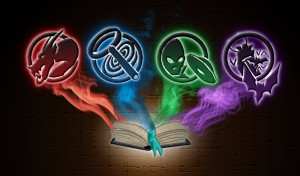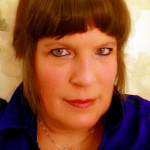Writing critique groups are like blogs. They both tend to start with vows of seriousness and dedication. They launch with vigor and excitement, but eventually slow and become work. Life gets complicated (as it always does) and priorities change. First one deadline is missed. Then two. Then all of them. Most often, people in the group wander away, and unless there is a constant flow of new blood, the collective falls apart. Though plentiful, most fail within a year.
However, decay and disbandment are not inevitable, just common. I’ve contributed to half a dozen blogs or critique groups over the years. Only two have continued to this day. First is the Fictorians. Second is my current critique group, which has been going strong for over two years and has helped us all grow as authors. So, what makes these two groups successful, whereas the others failed?
The key factor, I think, is ensuring the group is the right size for what it is trying to accomplish. Groups that are too small may fail to meet their goals because the work overwhelms the members. There are simply not enough people to carry the load. Another common pitfall that I’ve observed is the tendency of small groups to synchronize into a group think. There needs to be enough diversity of thought and experience to keep things interesting and productive. So why then not take a “the more, the merrier” approach? Wouldn’t a group open to the public be preferable?
Frankly not, in my experience. It’s a matter of the time and reliability of the individuals involved. Nobody’s time is infinite, so any meeting that is too large must inevitably splinter into smaller groups to allow for practical critique. Secondly, large groups inherently diffuse personal responsibility. Why, after all, does any one member need to meet their writing goals for the week or read the other members’ submissions? Surely someone else will do it. Finally, the larger the group, the more likely there will be conflicts of personality that sour the tone of the meetings. Writers put ourselves on display in our fiction. We must trust those we turn to for critique or we will not be open to their help.
Take as an example my first two critique groups. With seven and eight members respectively, reading everyone else’s submissions became a chore and seriously impinged on my writing time. The critique we offered was often superficial and therefore not terribly useful. The second major problem that killed these groups was that we were never able to meet face to face. We tried to use a private forum to bridge the gap, but that medium destroyed accountability and it wasn’t long before people stopped posting.
My current critique group calls ourselves “the League” and consists of three members. Though we may seem too small, our size makes us flexible and familiar. Though we live in different cities, we meet face to face each week via video conferencing. When one of us has something come up on the normal meeting date, we can usually find an alternative time. This maintains accountability, which has been my only reason for making keyboard time some weeks. Because we are friends, we trust and value one another. We understand each other well enough to know what our fellow authors are thinking and can therefore offer deep, constructive criticism. Furthermore, we are comfortable enough with one another to engage in productive conflict, pushing each other to be better.
Also key to the success of the League is that we have been able to adapt the group to our changing needs. We started by performing weekly writing challenges. At that point, we three needed something to get us writing consistently, and it worked. For a time. After a few months, we all grew bored and frustrated, yearning to get to actual fiction. We three are novelists at heart, after all, and 1,000 word challenges weren’t promoting our goals of becoming published authors. So one meeting we discussed the problem and decided to change our focus to be prewriting new books in tandem.
For a while, this vein worked for us. However, we eventually found ourselves bogged down and struggling with making consistent progress. Another discussion led us to take David Farland’s Story Puzzle class as a trio. The class was fantastic, but even better because we took it together.
We all received extremely positive feedback from Dave on our assignments. NOT because we were particularly brilliant, but rather because we discussed his lessons and workshopped the exercises before sending them to him. I firmly believe that we three got more out of the class because we took it with friends.
My critique group has found a size and a strategy that works for us. Though every writing journey is unique, none of us is in it alone. I would highly encourage any aspiring author to find a group of like minds to help them take their craft to the next level. Like writing itself, critique groups require dedication, time, trust, and most of all the ability to grow and change.




 Evan Braun is an author and editor who has been writing books for more than ten years. He is the author of The Watchers Chronicle, whose third volume, The Law of Radiance, has just been released. He specializes in both hard and soft science fiction and lives in the vicinity of Winnipeg, Manitoba.
Evan Braun is an author and editor who has been writing books for more than ten years. He is the author of The Watchers Chronicle, whose third volume, The Law of Radiance, has just been released. He specializes in both hard and soft science fiction and lives in the vicinity of Winnipeg, Manitoba.